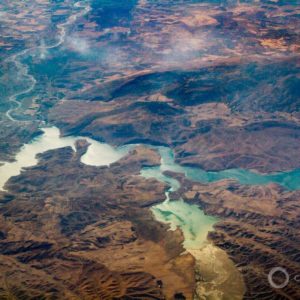The Stream, June 23: Water Sale Could Ease Pressure In Australia’s Murray-Darling Basin
The Global Rundown
The Australian government is buying thousands of megaliters of water entitlements from a cotton farm in the Murray-Darling River Basin. A top United Nations official has blamed the conflict in Yemen for the country’s rapidly spreading cholera outbreak. A major natural gas pipeline in Ohio could be delayed due to drilling fluid spills that damaged wetlands. Researchers in Africa warn that small cities face higher risks from floods, droughts, and other disasters due to poor governance. Ireland is experiencing low water supplies after an unusually dry winter.
“This is because of conflict, it’s man-made, it’s very severe, the numbers are absolutely staggering, it’s getting worse, and the cholera element in addition to the lack of food, the lack of medical supplies, primarily one has to put that at the door of all the parties to the conflict.” –Stephen O’Brien, Under-secretary-general for Humanitarian Affairs and Emergency Relief Coordinator at the United Nations, commenting on a massive cholera outbreak in Yemen. The outbreak has claimed 1,205 lives, and the number of cases is increasing by more than 4 percent every day. (Reuters)
By The Numbers
21,901 megaliters Amount of water entitlements a major cotton grower in New South Wales is selling back to the Australian government for the Murray-Darling River Basin. Officials say the sale will help relieve pressure on water supplies throughout the lower Darling River system, but farmers say it also highlights the challenges facing agriculture due to declining water reliability in the basin. ABC News
In context: Water buyback limit proposed for Australia’s Murray-Darling Basin.
7 spills of drilling fluid occurred at construction sites along the Rover natural gas pipeline in Ohio between April and May. The incidents damaged wetlands and waterways, prompting a federal investigation that could delay the completion of the line, which is a project of Energy Transfer Partners. Bloomberg
Science, Studies, And Reports
Researchers in Africa say a lack of effective government in small cities is increasing the risks from disasters like floods and droughts, as well as the health risks associated with poor water and sanitation infrastructure. To address those risks, they are encouraging cities to engage with slum organizations and respond to community demands. Reuters
On The Radar
Officials in Ireland warn that water supplies could tighten as the country feels the effects of an exceptionally dry winter. In some areas, water restrictions are being enforced, while in other areas residents are being encouraged to conserve supplies. The Irish Times
A news correspondent for Circle of Blue based out of Hawaii. She writes The Stream, Circle of Blue’s daily digest of international water news trends. Her interests include food security, ecology and the Great Lakes.
Contact Codi Kozacek




